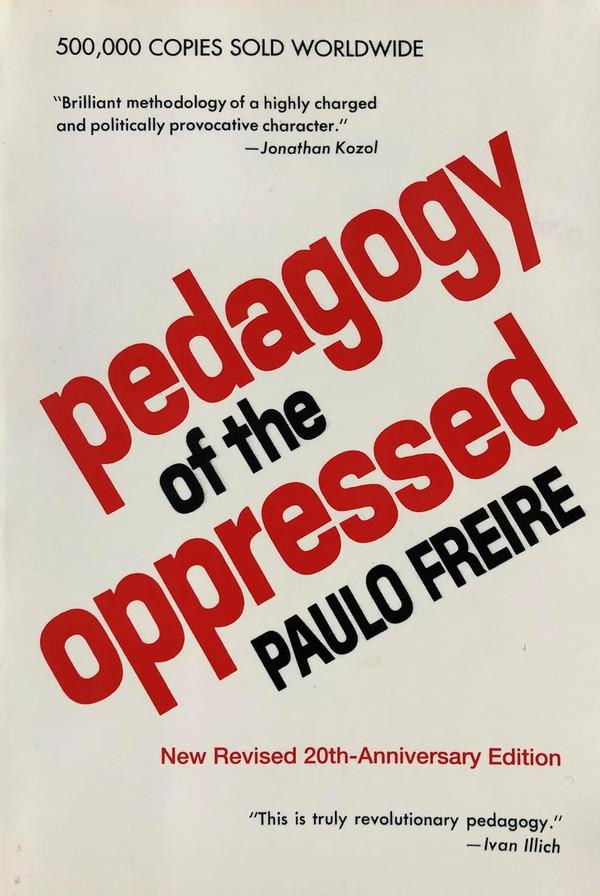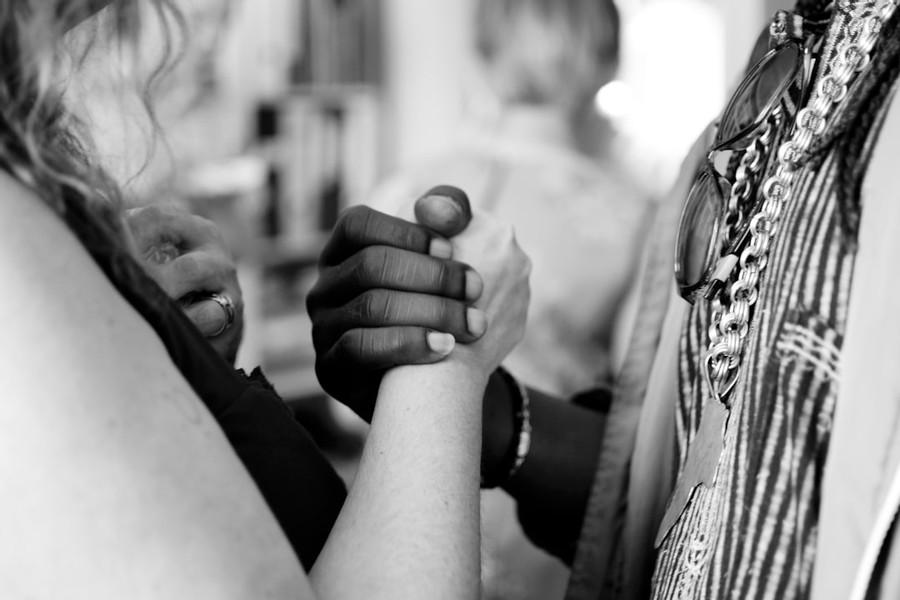Explore the World's Best Ideas
Join today and uncover 100+ curated journeys from 50+ topics. Unlock access to our mobile app with extensive features.
Not Losing Humanity When Fighting Oppression
Because it is a distortion of being more fully human, sooner or later being less human leads the opressed to struggle against those who made them so.
In order for this struggle to have meaning, the oppressed must not, in seeking to regain their humanity (which is a way to create it), become in turn oppressors of the oppressors, but rather restorers of the humanity in both.
16
184 reads
The Courage For Freedom
The oppressed, having internalised the image of the oppressor and adopted his guidelines, are fearful of freedom
Freedom would require them to eject this image and replace it with autonomy and responsibility.
Freedom is acquired by conquest, not by gift. It must be pursued constantly and responsibly. Freedom is not an ideal located outside of man: nor is it an idea which becomes myth. It is rather an indispensable condition for the quest for human completion.
15
119 reads
The Oppressor’s Bias
Conditioned by the experience of opressing others, any situations other than their former seems to them like oppression.
Formerly they could eat, dress, wear shoes, be educated, travel, and hear Beethoven; while millions did not eat, had no clothes or shoes, neither studied nor traveled, much less listened to Beethoven.
Any restrictions on this way of life, in the name of the rights of the community, appears to the former oppressors as a profound violation of their individual rights - although they had no respect for the millions who suffered.
12
96 reads
Humanity Implies Trust
Certain opressors change sides and join the oppressed in their struggle for liberation, but because of their background they believe that they must be the executors of the transformation.
They talk about the people, but they do not trust them; and trusting the people is the indispensable precondition for revolutionary change.
A real humanist can be identified more by his trust in the people, which engages him in their struggle, than by a thousand actions in their favor without that trust.
13
89 reads
The Narrative Character Of Education
This relationship involves a narrating Subject (the teacher) and patient, listening objects (the students).
The teacher talks about reality as if were motionless, static, compartmentalized, and predictable.
He expounds on a topic completely alien to the existential experience of the students.
His task is to “fill” the students with the contents of his narration.
Words are emptied of their concreteness and become a hollow, alienated, and alienating verbosity.
13
90 reads
The Banking Concept Of Education
Education becomes an act of depositing, in which the students are the depositories and the teacher is the depositor.
Students become collectors or cataloguers of the things they store.
12
91 reads
Curiosity vs. Learning
Knowledge emerges only through invention and re-invention, through restless, impatient, continuing, hopeful inquiry human beings pursue in the world, with the world, and with each other.
The raison d’être of libertarian education lies in its drive towards reconciliation.
Education must begin with the solution of the teacher-student contradiction, by reconciling the poles of contradiction so that both are simultaneously teachers and students.
13
86 reads
Ready-to-wear Education
The interests of the oppressors lie in “changing the consciousness of the opressed, not the situation which oppresses them”.
The educator’s role is to regulate the way the world “enters into” the students. People “receive” the world as passive entities. The educated individual is the adapted person, because she or he is better “fit” for the world.
Everything in this ready-to-wear approach serves to obviate thinking.
9
8 reads
Education as the practice of freedom
The role of the problem-posing educator is to create, together with the students, the conditions under which knowledge at the level of the doxa is superseded by true knowledge, at the level of the logos.
Whereas banking education anesthetizes and inhibits creative power, problem-posing education involves a constant unveiling of reality.
The former attempts to maintain the submersion of counsciousness; the latter strives for the emergence of consciousness and critical intervention in reality.
7
6 reads
People in their relation to the world
Education as the practice of freedom- as opposed to education as the practice of domination- denies that man is abstract, isolated, independent, and unattached to the world; it also denies that the world exists as a reality apart from people.
7
8 reads
The unfinished character of human beings
Problem-posing education affirms men and women as beings in the process of becoming- as unfinished, uncompleted beings in and with a likewise unfinished reality.
The unfinished character pf human beings and the transformational character of reality necessitate that education be an ongoing activity.
Problem-posing education is revolutionary futurity.
7
6 reads
Attempting to be more human
The pursuit of full humanity cannot be carried out in isolation or individualism, but only in fellowship and solidarity.
No one can be authentically human while he prevents others from being so.
7
12 reads
IDEAS CURATED BY
CURATOR'S NOTE
The world is spiralling with global conflicts and one wonders how true change can come about within oppressed societies. Freire’s text remains ardently relevant.
“
Discover Key Ideas from Books on Similar Topics
5 ideas
The 7 Lessons of Bushido, the Way of the Warrior
exploringyourmind.com
Read & Learn
20x Faster
without
deepstash
with
deepstash
with
deepstash
Personalized microlearning
—
100+ Learning Journeys
—
Access to 200,000+ ideas
—
Access to the mobile app
—
Unlimited idea saving
—
—
Unlimited history
—
—
Unlimited listening to ideas
—
—
Downloading & offline access
—
—
Supercharge your mind with one idea per day
Enter your email and spend 1 minute every day to learn something new.
I agree to receive email updates





